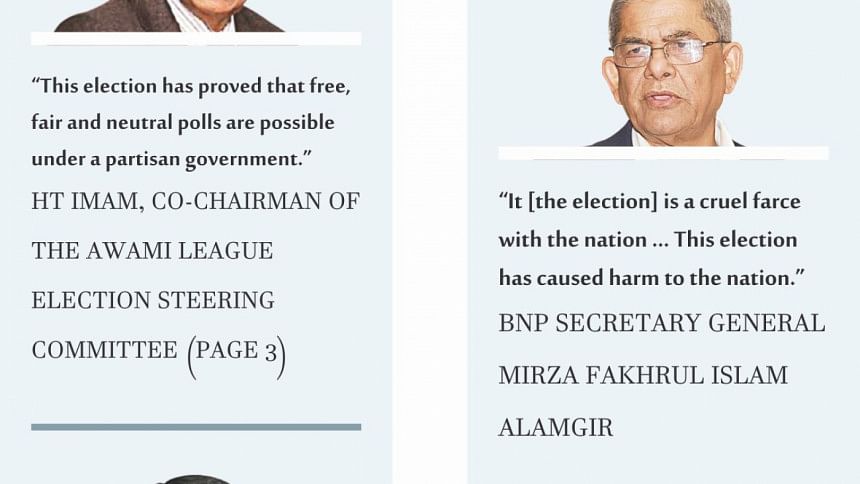
What they said
Related News
The High Court will deliver its order today on a writ petition that challenged the legality of oath-taking of lawmakers elected in the December 30 national election.
Advocate Md Taherul Islam Tawhid filed the petition on January 14, praying to the HC to issue a rule asking the Election Commission and the government to explain why the oath taking should not be declared illegal.
The lawyer also sought necessary HC orders on the authorities concerned to block the new lawmakers from discharging their functions.
The HC bench of Justice Moyeenul Islam Chowdhury and Justice Md Ashraful Kamal fixed the date after holding a hearing yesterday.
During the hearing, Taherul's lawyer Barrister AM Mahbub Uddin Khokon argued that the oath-taking violated articles 123(3) and 148(3) of the constitution of Bangladesh.
According to article 123(3)(a), parliamentary election shall be held within 90 days of dissolving the incumbent parliament.
“As the 11th national election was held without dissolving the 10th parliament, the polls have breached the constitution,” Barrister Khokon said.
Moreover, as per article 148(3) if a person is required to make an oath before entering an office, s/he shall be deemed to have entered office immediately after the oath.
Following article 148(3), the new lawmakers shall be deemed to have taken office right after they were sworn in, Khokon added.
However, the 10th national parliament which first sat on January 29, 2014 still exists and will continue till January 28 this year as per Article 72(3) of the constitution, he said, adding, “the oath-taking of the lawmakers is hence unconstitutional”.
On the other hand, Attorney General Mahbubey Alam opposed the writ petition saying that the petitioner lacks locus standi or sufficient interest in the matter in question.
“Advocate Tawhid is neither an elected lawmaker nor a candidate of the December 30 election,” the AG said, adding that there is no legal basis for the court to consider the petition.
The Election Commission will announce next week the election schedule for the 50 reserved seats for women in the 11th parliament, EC Secretary Helal Uddin Ahmed said today.
“According to the 11th parliamentary election results, 43 seats will be reserved for Awami League while four for the Jatiya Party, one for Jatiya Oikyafront and two for the independent and other candidates,” Helal Uddin Ahmed told reporters at Nirbachan Bhaban in the capital’s Agargaon.
Besides, the upazila parishad elections will be held in phases from the first week of March, he added.
The AL-led grand alliance secured 288 seats -- the AL 257, the JP 22 and others 9 -- in the December 30 election. The BNP-led Jatiya Oikyafront got only eight seats.
A group of foreign and local election observers, who monitored the December 30 parliamentary election, has termed the election free, fair, peaceful and on a par with major democratic countries in the world.
The foreign observers from Canada, India, Nepal and Sri Lanka, who came to Bangladesh at the invitation of Election Monitoring Forum (EMF) and SAARC Human Rights Foundation (SHRF), also said the just concluded election was “much better” than past elections in Bangladesh and could be a “glowing example for other democratic countries”.
The foreign observers were speaking at a press conference held at Jatiya Press Club yesterday to share what they have seen during their daylong visit to nine polling centres in the capital on Sunday.
“This was a world standard election…We can compare this with the elections of major democratic countries,” said former president of Kolkata Press Club, Kamal Bhattacharya.
The senior journalist told Bangladeshi media that he had covered two past elections in Bangladesh as a reporter, and this time he came as an observer.
“I talked to a number of voters standing in queues and inside polling centres and no one told me they faced any threat, harassment or intimidation,” he said.
He said voters had trust and confidence in the Election Commission and authorities concerned that they would follow the best practices in the election; the arrangements helped voters to cast their votes smoothly and with safety.
Another observer from Nepal, Advocate Mohamadin Ali, said Bangladesh has set the best example of a high standard election.
Former minister and member of Nepal Communist Party, Hakikullah Musalman, said he was immensely impressed to see such a peaceful, disciplined and orderly election in Bangladesh.
Speaking at the press conference, Prof Mohammed Abed Ali, executive director of Election Monitoring Forum, informed that the forum is an association of 31 organisations and 26 NGOs registered under the Election Commission.
He said they deployed 5,765 observers in 214 constituencies out of 299, who visited 17,165 centres. Abed Ali said it was a peaceful election and it was far better than previous ones.
Director General of External Publicity Wing of the Foreign Ministry, Mohammad Sarwar Mahmood; Canadian observers Tania Dawn Foster and Chally Foster; Nepalese Communist Party member and former MP Nazir Mia; lawyer of Kolkata Judge Court Gautom Ghosh; writer and researcher from Sri Lanka Mohammed Ehsan Iqbal; and SAARC Human Rights Foundation's director Masum Chowdhury were also present at the press conference.
After Bangladesh's journey began on the path to becoming a modern democracy in 1991, many expected that electoral democracy would gain a strong footing gradually. But that hope and aspiration stumbled for the first slip at the infamous Magura-2 parliamentary by-polls on March 20, 1994. It became a symbol of a rigged election in the era of democracy, which seemed to have been restored after Ershad's autocratic regime came crashing down.
That by-election brought two issues to the fore: that a free and fair election was not possible under a partisan government, and that the Election Commission was not free at all under a political government. The by-polls helped the Awami League-led opposition parties of that time to intensify their campaign for the introduction of a non-partisan, election-time government.
In the face of a strong campaign launched by the opposition, a caretaker government provision was introduced in the constitution and, subsequently, four national elections were held under non-partisan caretaker governments. Those elections were, by and large, free from the controversy of vote-rigging and ballot-stuffing. But the caretaker government system was annulled from the constitution following a court verdict. And we saw a resumption of the old tactics of vote rigging, with polling centres being run over by party cadres, ousting of polling agents, stuffing and snatching of ballot boxes, and intimidation of voters.
Then came the two controversial national elections of 2014 and 2018. While the BNP boycotted the 2014 election, the 2018 election saw 153 ruling-party-aligned candidates elected uncontested amid widespread allegations of irregularities. There were allegations that ballot boxes were stuffed the night before the election, and the opposition camp lost the election even before voting had begun.
In recent times, we have also witnessed voter turnouts gradually declining, which is surely an ominous sign for democracy.
After around three decades, if we look back at that fateful by-election of Magura, we would realise that the situation has not changed much. It happened again at the Gaibandha-5 by-election. The issue of by-elections came into discussion once again when seven BNP lawmakers – the only BNP candidates who had managed to win in 2018 – resigned. After their resignation, the Election Commission announced the election schedule, and the ruling Awami League and the main opposition in parliament, the Jatiya Party, nominated their respective candidates. But the Brahmanbaria-2 by-poll stole the show as a former BNP leader (after having been expelled from his party), Ukil Abdus Sattar, contested the election as an independent candidate.
Sattar had been elected five times from the constituency and had been state minister as a technocrat. His loyalty to the party was unquestionable. Following an order from the party high command, he had resigned from parliament, but made a surprise turn-around as he decided to contest the by-election as an independent candidate, in turn getting himself expelled from the BNP. The belief held in his constituency is that Sattar is contesting the polls for two reasons – first, he was trapped by the government and second, out of fear that he would not get the party ticket for the next election as he is over 83 years old.
Another reason is that BNP leader Rumeen Farhana has a high probability of getting the party nomination in the next election from that constituency. For Sattar, his political future is almost ending. Many in the constituency have also said that it is actually Sattar's son who is trying to "make his future" through this by-election.
This particular by-election attracted further attention when all three ruling Awami League aspirants – it was open to anyone interested to run – withdrew their candidacy following the directions of party high-ups. It turned out to be a cakewalk for Sattar. On AL's part, it was presumably a good gesture to let a senior politician of the opposing camp have a last hurrah, since he is most likely at the twilight of a long and distinguished career. However, it is so rare that this incident is certain to go down in history as a very likely one-off where the ruling party favoured an opposition candidate.
The ruling Awami League has repeatedly said that the next election will be a free, fair, and inclusive one. BNP sent a strong message through the resignation of its lawmakers, saying that it was not making empty threats when saying that the party would not join any elections under the incumbent government. And Awami League appeared to have countered this with a tactic of sending a message to BNP aspirants, saying they might get an open field if they break away and run during the elections. Then, Awami League could claim the elections to be inclusive and also be certain of retaining office.
It is often said that in politics, there is no last word. Through Sattar's participation, the ruling Awami League will try to prove a few things, particularly that BNP's decision to resign from the parliament was wrong, and will send a message to BNP leaders and aspirants that they may have a chance in the next polls if they betray their party and create a few cracks in what has so far remained steadfast determination. It is perhaps BNP's biggest achievement of the last 15 years that the party remained intact, with none of its stalwarts breaking away. But Sattar's election may have an impact.
But one must wonder whether this move was indeed a good strategy for the ruling party. Is politics just a voting game? Should there not be moral or ideological practices in politics? After all, the one thing politicians must keep in mind is that once someone is labelled as a traitor, it hangs around their neck like the fabled albatross.
BNP had to rig the Magura by-polls in 1994 to back their claim that their popularity had not decreased. Three decades later, the AL took on a different strategy and let an independent candidate win to coax out aspirants from BNP's fold. In 1994, although BNP won the polls, it was defeated in politics. The Awami League might console itself with a self-congratulatory chuckle thanks to Sattar's victory. It might almost seem that the Awami League has manipulated a win in the first skirmish. But will such a stratagem or tactic win them the war?
Mohammad Al-Masum Molla is deputy chief reporter at The Daily Star.
The United States has said unlawful or political killings, forced disappearances, life-threatening prison conditions, freedom of speech limitations, negative government pressure on and fear of reprisal by press and media, and impunity for security force abuses were the most significant human rights problems in Bangladesh last year.
US Secretary of State Michael R Pompeo formally released the 2018 Country Reports on Human Rights Practices and delivered on-camera remarks yesterday morning at the press briefing room of US Department of State in Washington DC.
There were reports of widespread impunity for security force abuses last year, while the Bangladesh government took few measures to investigate and prosecute cases of abuse and killing by security forces, said the report.
It also considered a number of rights issues, such as torture, arbitrary detentions, corruption, trafficking, overly restrictive NGO laws, workers' rights, use of the worst forms of child labour, and violence against LGBTI persons; unlawful interference into privacy, censorship, site blocking, peaceful assembly and freedom of association; criminal libel; restrictions on freedom of movement, political participation, trade unions.
On the role of the police and security Apparatus, the US report said though civilian authorities maintained effective control over military and other security forces and the government had mechanisms to investigate abuses and corruption by them, those were not regularly employed.
The report said the government neither released statistics on total killings by security personnel nor took comprehensive measures to investigate them.
In regards to the security forces' continued abuses with impunity, it identified lengthy trial procedures, retribution, and police having ties to ruling party men who occupy key positions in law and enforcement agencies.
“Reluctance to bring charges against police also perpetuated a climate of impunity,” it added.
On elections and political participation, the report termed the December parliamentary elections “lop-sided” and said it was considered to be marred by irregularities, including ballot-box stuffing and intimidation of opposition polling agents and voters.
It said the government mobilised law enforcement resources to level civil and criminal charges against opposition party leaders.
The report also highlighted numerous reports of arbitrary or unlawful killings committed by the government or its agents.
It said Human Rights Support Society (HRSS) reported security forces killed more than 400 individuals in crossfire incidents from January through September. Odhikar, another rights body, reported the number to be 415 from January through October.
The anti-narcotics drive in May resulted in an increase of reported extrajudicial killings relative to last year.
Human rights organisations and civil society contended the drive was a government effort to exert increased political control over the populace before the national election.
The report also highlighted claims that the government made limited efforts to prevent or investigate forced disappearances. HRSS stated there were 58 enforced disappearances from January through September. Odhikar said the number was 83 from January to November.
In terms of freedom of expression, it said the government sometimes failed to respect the right.
There were significant limitations on freedom of speech with self-censorship persisting due to harassment and fear of reprisal.
It said both print and online independent media were active and expressed a wide variety of views; however, media outlets that criticised the government experienced negative government pressure.
Civil society said political interference influenced the licensing process, since all television channel licenses granted by the government were for stations supporting the ruling party.
There were also incidents of journalists coming under attack by ruling party loyalists and intelligence men.
Independent journalists alleged intelligence services influenced media outlets in part by withholding financially important government advertising and pressed private companies to withhold their advertising as well.
In September parliament passed the Digital Security Act, claiming it was intended to reduce cybercrimes. Human rights groups, journalists, media outlets, and political opposition parties denounced the DSA as intended to suppress freedom and criminalise free speech.


 For all latest news, follow The Daily Star's Google News channel.
For all latest news, follow The Daily Star's Google News channel. 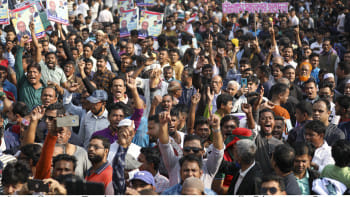
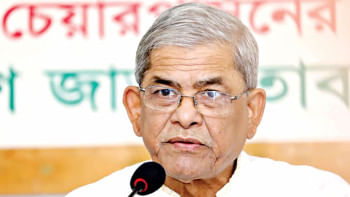
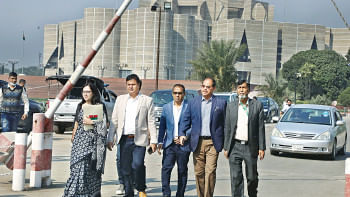
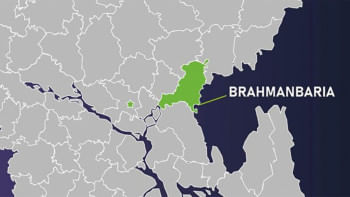
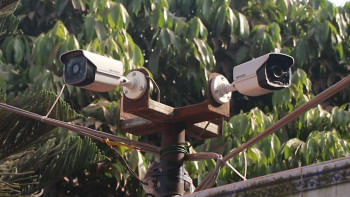
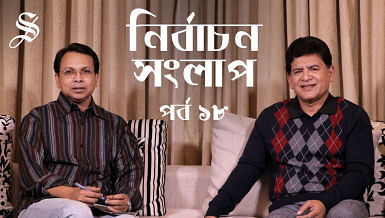
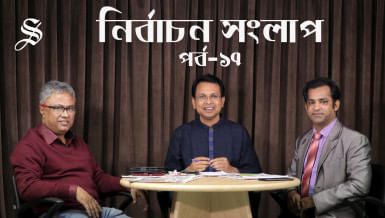
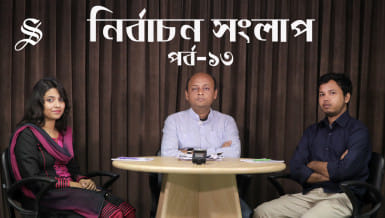
Leave your comments